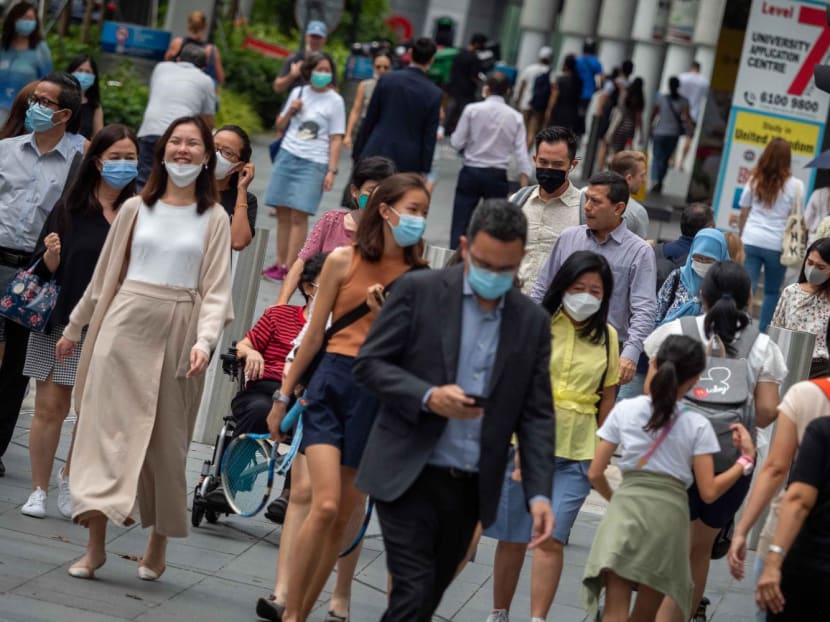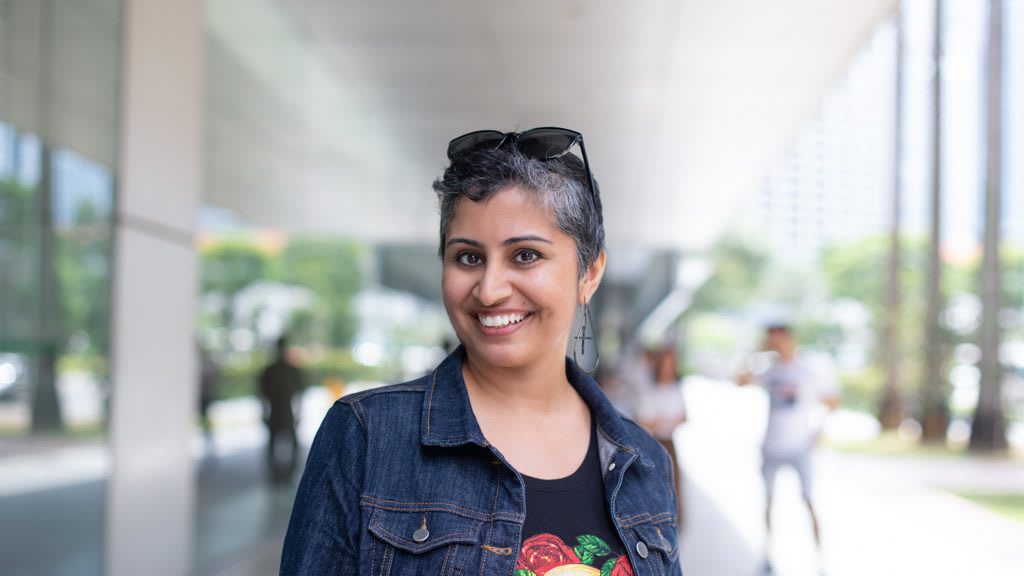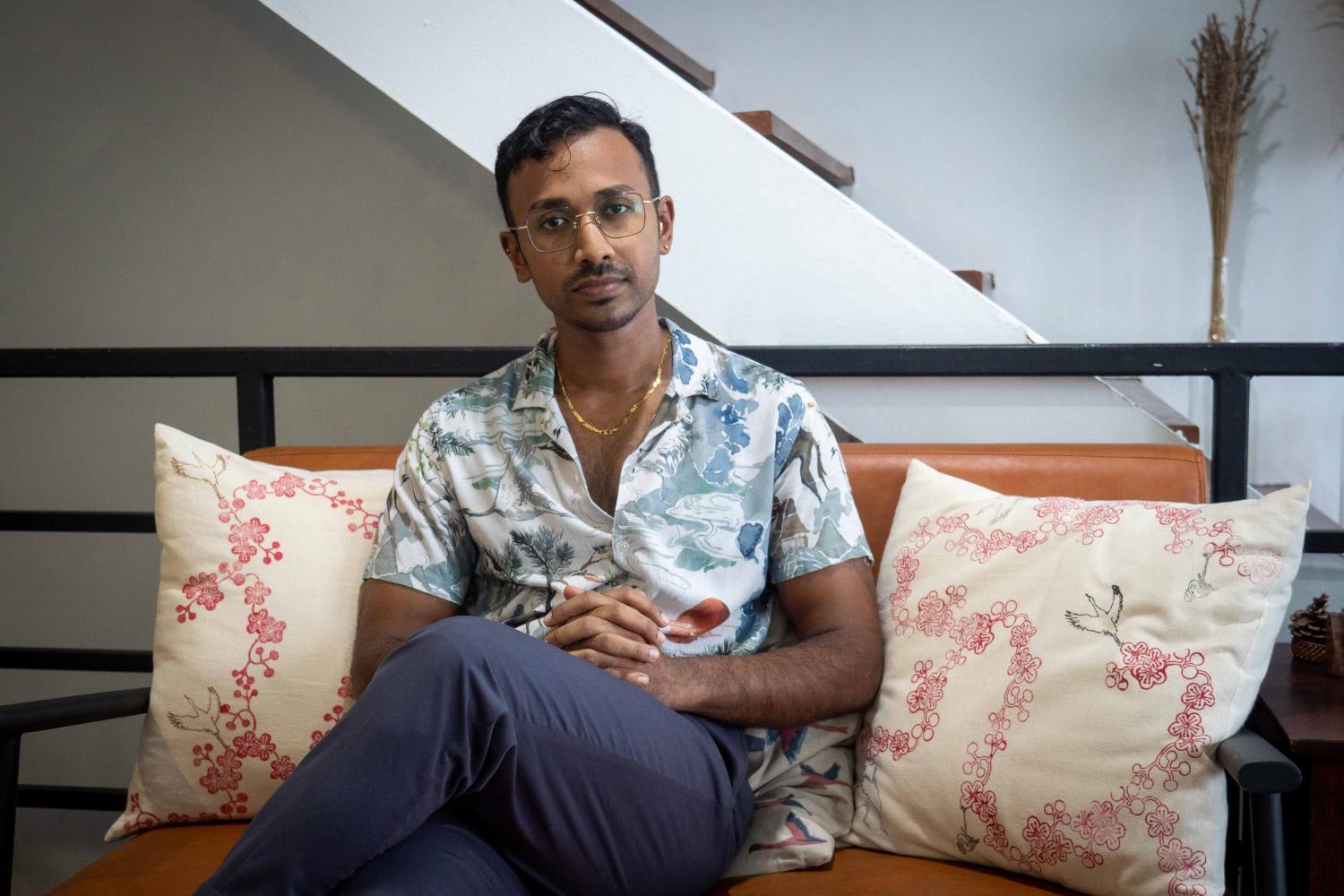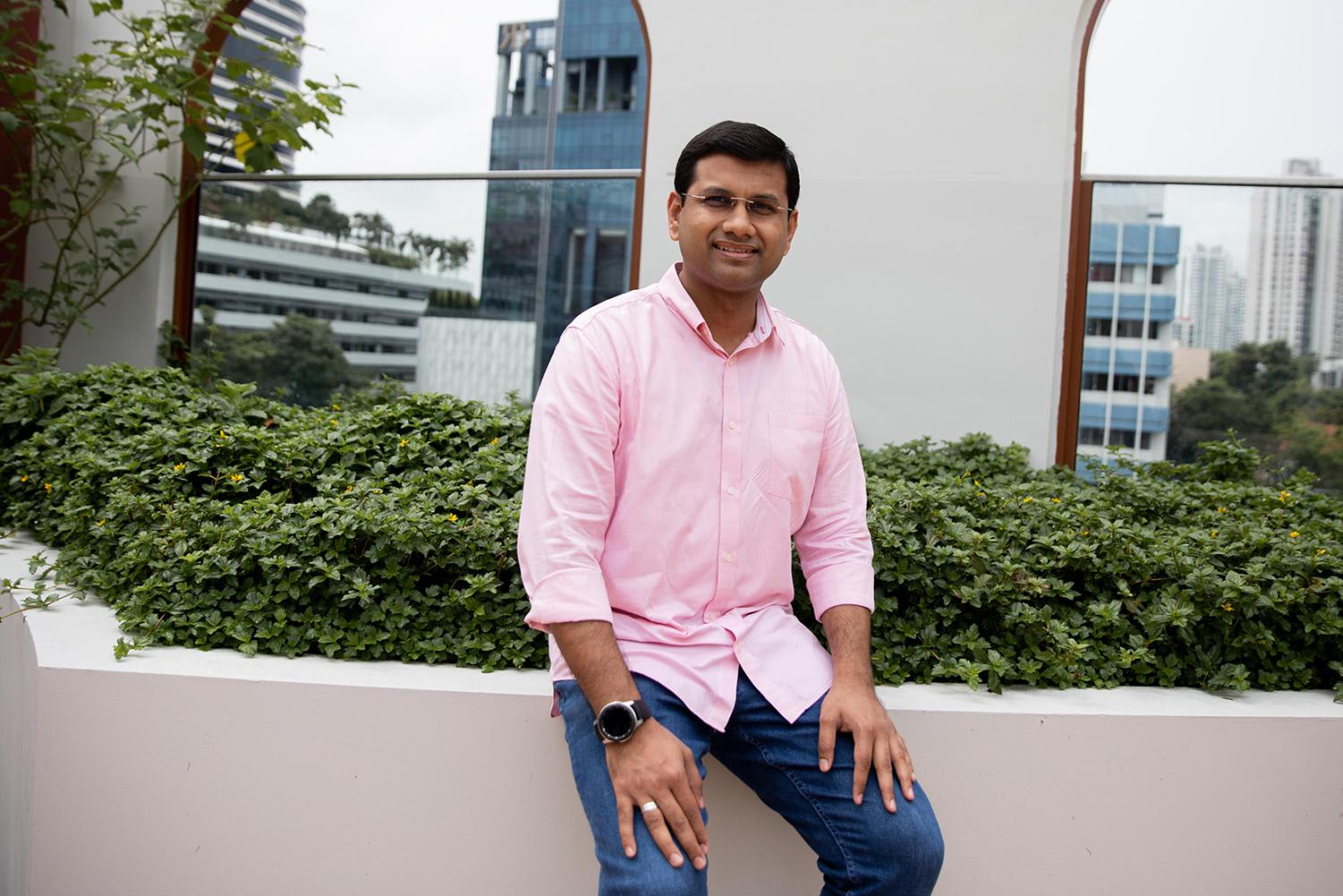The Big Read in short: Rooting out everyday racism

Unlike overt and intentional acts of racism, casual racism is not often intended to cause offence or harm. However, illustrating how the choice of words are important in any discussion on race and ethnic relations, the term "casual racism" has come under fire for making light of the impact and consequences of such behaviours.
This article was written in partnership with the National Youth Council. Join us in our Instagram Live webinar on 12pm, Wednesday (June 29) on the topic of getting to the root of racism.
Each week, TODAY’s long-running Big Read series delves into the trends and issues that matter. This week, we examine the problem of everyday racism or microaggression and how to eradicate it. This is a shortened version of the full feature, which can be found here.
- While the fact is that racism exists in Singapore, its manifestation in the form of jokes or casual remarks are especially rankling for the victims since they are often expected to take them in their stride
- The topic of racism has become less of a taboo in Singapore society in recent years, with some of the public discussions focusing on how the minority groups can speak out against it
- But in the first place, as those interviewed pointed out, why should the onus of stamping out racism — including its most basic form — fall on the people on the receiving end, instead of the perpetrators?
- For starters, learn about why certain words or actions are offensive, why they inflict hurt and what to say or do instead
- Some interviewees also felt that, among other things, Singapore society needs to encourage more honest, ground-up, and minority-led conversations on racism
SINGAPORE — After all these years, Mr Asyraf still remembers how some of his close friends who are Chinese called him a "black monkey" in his teens. A remark made by one of them — “If I turn off the lights, we won’t be able to see you.” — also remains firmly etched in his mind.
While he did not like such comments, he did not think much of them at first.
“I was just laughing along with it. But now when I think about it, it’s f***** up,” said Mr Asyraf. The 28-year-old marketing professional, who is Malay and has some Indian heritage, declined to be identified by his full name.
"It’s always jokes and they’re always about my skin tone and my appearance,” he added.
At a bakery in Kembangan buying some kueh last year, Ms Sherlin Pravin Giri elicited a confused look from the cashier when she began speaking in Malay.
She told the cashier that she could speak the language because she is Singaporean, to which the latter replied: “But… you look like… Bollywood.”
Such experiences and several other encounters of such forms of racism recounted to TODAY in the past week, are but a slice of what ethnic minorities in Singapore face in their everyday lives.
While the fact is that racism exists in Singapore, its manifestation in the form of jokes or casual remarks are especially rankling for the victims since they are often expected to take them in their stride. Those interviewed by TODAY stressed that such nasty wisecracks, even if uttered without malice, have no place in society.
Mr Asyraf said that despite always reacting jovially to his friends’ banter, their remarks made him feel insecure about his physical appearance growing up.
“When I looked in the mirror, I really didn't like how I looked. There were times I thought it'd be easier if I were born Chinese,” he said.
The topic of racism has become less of a taboo in Singapore society in recent years, with some of the public discussions focusing on how the minority groups can speak out against it.
But in the first place, as those interviewed pointed out, why should the onus of stamping out racism — including its most basic form — fall on the people on the receiving end, instead of the perpetrators?
In Singapore, the term “casual racism” has been used by academics and government officials alike to describe such acts.
The Australian Human Rights Commission defines casual racism as conduct involving negative stereotypes or prejudices about people on the basis of race, colour or ethnicity. It includes jokes, off-handed comments and exclusion of people from social situations based on race.
Unlike overt and intentional acts of racism, casual racism is not often intended to cause offence or harm, the commission adds.
However, illustrating how the choice of words are important in any discussion on race and ethnic relations, the term "casual racism" has come under fire for making light of the impact and consequences of such behaviours.
“There’s nothing casual about racism,” said Mr Sharvesh Leatchmanan, 25, the co-founder of Minority Voices, a website and Instagram page that captures first-person accounts of racism and discrimination faced by minority groups in Singapore.
“Whatever the intention is, it’s still racist,” he said, adding that downplaying these acts of racism as casual comes across as a means to absolve the responsibility of the person causing the offence.
Definitions are important, reiterated Dr Nazry Bahrawi, a Singaporean assistant professor of Southeast Asian Literature and Culture at the University of Washington in Seattle.
“The adjective ‘casual’ denotes that racism is accidental or unexpected. However, ethnic minorities including those in Singapore have taken to social media to highlight that racism is more common than we think," he said.
Since it is more regular than people think, “everyday racism” would be a more appropriate description, he noted.
An even better term is "microaggression", he added. It refers to comments, questions or actions that cause discomfort or even hurt to someone, stemming from that person’s belonging to a marginalised group. This can take the form of stereotypes or bigotry.
“If we want to see real change, I think Singapore needs to be bolder about accepting that the issue is not ‘casual’ but could in fact be more widespread and systemic than we’d care to admit,” Dr Nazry said.
“Otherwise, we can have all the dialogue in the world, and we would only be talking around the issue without making much progress.”
WHAT'S OFFENSIVE, WHY IT HURTS, AND WHAT TO SAY OR DO INSTEAD
A CNN article in 2020 noted that microaggressions can be intentional or unintentional and sometimes even well-meaning. However, they communicate hostile, derogatory or negative racial messages or assumptions to the receiver.
In the Singapore context, individuals from minority ethnic groups also face microaggressions in everyday life, be it in the form of words or actions. Here are some examples:
- “You’re good-looking/ hardworking for your race.”
Why it's offensive: These comments can be seen as backhanded compliments that imply something negative about a race. Compliments such as being good-looking or hardworking are human attributes and not a feature of any race, said Mr Mohamed Imran Mohamed Taib, founder and board member of the Centre for Interfaith Understanding.
What to say instead: “If we want to offer a compliment, simply say ‘You're good-looking or hardworking’,” Mr Imran said. “To add ‘for your race’ implies the assumption that one’s race is generally ugly or lazy.”
- “I can’t see you when I turn off the lights.”
Why it’s offensive: Racist jokes are often used so that people can defend their racist notions with the pretext that they were just engaging in light-hearted humour, said Dr Mathew Mathews, head of the Institute of Policy Studies Social Lab and principal research fellow at the institute.
At the heart of it, these jokes play on the vulnerabilities and insecurities of the victim, said Dr Mathews, who is also a board member of OnePeople.sg, an advocacy body championing inter-racial and inter-religious understanding. They normalise racism and reduce them to "fun" or "casual" remarks that shouldn't be taken too seriously, he added.
What to say instead: Simply put, Mr Imran said, don’t make such jokes.
- Using terms that are, or have come to be, derogatory.
Why it’s offensive: Some of these terms may have had neutral meanings in the past, but have come to be derogatory over the years, said Mr Imran.
“Mangkali”, for instance, is a bastardised form of the word Bengali while “Keling” was used to refer to South Asians assumed to have come from the historical region of Kalinga in India, he said. Some terms like “Matrep” or “Minah”, which are terms to describe a subculture, may or may not be a racial slur depending on the context, he added. But words like “Ahpu Neneh”, a distortion of the word “brother” in Tamil to refer to a body part, are a total insult.
Dr Mathews added that even though some words are "reclaimed" by members of the minority groups themselves, it does not empty out the socially negative connotations of the terms. "Underneath those terms lie decades of prejudice, stereotypes, and even elements of classism," he said.
What to say instead: “It is important to refer to a person in dignified ways rather than using words that are demeaning, even if the intent is to appear close and friendly,” said Mr Imran.
- “I’m not racist, I have a friend from an ethnic minority group. You’re being too sensitive.”
Why it’s offensive: Racism is a way of thinking that essentialises a race and views the races through the lens of superiority and inferiority, said Mr Imran. Having a friend from an ethnic minority does not shield someone from being racist, he added.
What to say instead: Always avoid being defensive when called out and instead, try to understand why a person felt hurt by a remark that he or she perceived as racist, Mr Imran said. “Try to see the world through the lens of another person's lived experiences. This will make for a better conversation over issues that have hurt others, particularly of the minorities who may not have the same privilege as being in the majority."
- Gripping your child's hand tighter or pulling him or her away when passing someone of a different race.
Why it’s offensive: Unless the person does this when passing by all strangers, the child will inevitably learn to avoid people of that race even though they may not understand why, Dr Matthews said. "They are simply being socialised that some people of a particular race can be dangerous," he added. "Research has shown that children pick up on such cues in school and from home, even when they are not taught explicitly about race and racial differences."
What to do instead: The person should ask why he or she does that, Mr Imran suggested. “Is it because you have entertained a negative view associated with that race?”
He or she should also question why certain social problems are associated with a race, Mr Imran added. “Is it because of their overrepresentation in a lower social class that is often linked to crime?... Is it because of their race or other sociological factors such as the social environment that does not provide or support a positive development of a person?”
Once people uncover their own biases, they will start to behave differently, Mr Imran said. It will also help people think about their own privilege and hopefully, question how to use that privilege to help others instead of judging them, he added.
THE ‘TRAUMA’ OF EVERYDAY RACISM
Apart from the incident at the Kembangan bakery, Ms Sherlin said she has been made very cognisant of her race through the racist episodes she faced as she was growing up, in part because she read the Malay language in school as her Mother Tongue, or what was known as Second Language back then.
Ms Sherlin was born in Singapore to a Punjabi mother and a Hindustani father. Her parents are both Singaporeans.
In What We Inherit: Growing Up Indian, an anthology by The Association of Women for Action and Research (Aware) soon to be distributed by Ethos Books, she recounts how she often gets confused stares from people trying to figure out her racial identity, because she didn’t look or speak like the Tamilian Indians often portrayed in local media.

In the book, she writes that at a coffee shop, she tries to "compensate for my dubious identity by sounding extra Singaporean and nodding politely". "If I can throw in a ‘xie xie ni (thank you in Mandarin), Uncle’ for good measure, I do so without hesitating," she writes. “Consciously or not, I got to try to prove I belong.”
The power of microaggressions is in its cumulative effect, said the book’s co-editor Shailey Hingorani, who is also the women’s advocacy group’s head of advocacy, research and communications.
Such incidents, when not addressed meaningfully, are left to simmer, she said.
“This leads to ethnic minorities looking back on these incidents continuously, reinforcing the feeling that they do not belong.”
When someone experiences a microaggression, it may also trigger memories of similar incidents, Ms Hingorani added.
It is this trauma, said actor Gosteloa Spancer, 34, that makes it so emotionally taxing whenever he has to call out and correct someone.
“For the person who has experienced racism his entire life, he needs to sit through his trauma first before he can educate (the other person),” he said.

Indeed, everyday racism faced by ethnic minorities can have a negative effect on their emotional and psychological development, said Mr Mohamed Imran Mohamed Taib, founder and board member of the Centre for Interfaith Understanding.
In his involvement in social work, Mr Imran said he has encountered many Malays who either have an inferiority complex or wish to dissociate themselves from the Malay community.
One explanation is that they have internalised the negative stereotypes and view their own community through such lens.
Some would overcompensate by declaring that they are a "different type of Malay", while others explain their lack of success to "being Malay", Mr Imran said.
“This is the kind of harm that casual racism causes. It will not be apparent unless it forms your everyday reality and you live at the receiving end of racism.”
TACKLING MICROAGGRESSION: CALLING OUT OR CALLING IN?
Some Singaporeans would argue that there was a time not so long ago when people could crack racist jokes without anyone batting an eyelid. In their view, the country’s racial groups had always been harmonious to the point of poking fun at each other, Dr Nazry noted.
“So, an incident such as a Chinese actor putting on brownface has been said to be ‘normal’; nothing to fret about,” he said.
“I don’t find this argument convincing,” he added. “To address the problem of racism means to first accept that Singapore may not have been as successfully multicultural as we think, and that we might learn from other societies with similar social compacts on how we can do better.”
A recent poll by the National Youth Council (NYC) found that two-thirds of youths have personally experienced or witnessed racial discrimination, with experiences differing for different races.
The NYC Youth Discrimination and Inclusivity Sentiment Poll surveyed over 1,000 Singaporeans and Permanent Residents aged 16 to 34 between October and November last year.
While a majority of respondents (85 per cent) believed Singapore was heading in the right direction towards being racially inclusive, more than half (55 per cent) thought a lot more work was still needed.
Over the past few years, several instances of racism and microaggressions have been called out on social media, from a street confrontation between a polytechnic lecturer and an inter-ethnic couple to the People’s Association’s use of a cutout of a woman’s wedding photo as part of Hari Raya decorations.
Mr Jose Raymond, who started the #CallItOutSG movement with three others in 2021 to urge victims of racism to come forward with their experiences, said that people need to be called out so they will be made aware that what they are saying or doing affects others and is unacceptable in society.
“This is one way to bring about behavioural change,” said the director of strategy of a public relations firm. “The people who are called out need to take it in the right spirit. What they are doing is not acceptable, and they need to be called out and told off, especially if it affects others.”
Mr Mohamed Irshad, founder of youth-driven interfaith organisation Roses of Peace, said that when a person calls out someone else, it sometimes misses the point of engaging the person to learn that what he or she did was wrong.
Instead, he thinks that “calling in” is more appropriate, where the person is engaged in a way that educates him or her.
He cited the example of how in 2019, the Young Sikh Association invited beauty and fashion influencer Sheena Phua to visit a Sikh temple after she made an insensitive post about Sikhs.
“What we need more is for us to connect to the other person who is making such remarks in an empathetic manner, to call them in… so that they are able to change their perception, so that they can develop an understanding,” said Mr Irshad, a former Nominated Member of Parliament.

Some noted, however, that the onus of calling out or "calling in" somebody seems to fall unfairly on the person at the receiving end of the racism, who has to work through his or her anger and resolve the issue in a constructive manner.
Mr Sharvesh, the co-founder of Minority Voices, said: “If I’m already being affected by this and I’m expected to teach someone else?... I don’t get that.
“If this person is not intending to cause hurt, then they should know that they have caused someone hurt. And to understand why, they should go and educate themselves.”
Mr Raymond said that society also needs to encourage more honest, ground-up, and minority-led conversations on racism.
“We must allow minorities to speak candidly about the prejudices they face and tackle them at various levels from schools to workplaces,” he said.
Aware’s Ms Hingorani said that to move forward, society must first acknowledge that these microaggressions are not one-off incidents but a regular part of life for ethnic minorities.
Bystanders also play an important role and should intervene when they witness instances of racism, especially when minorities may risk their personal well-being if they speak up for themselves.
Mr Spancer said that employees should also examine whether their workplace is inclusive to all races and raise any concerns they have to their employers.
Parents and educators have a big role to play as well, since stereotypes are often formed in a child’s early years, said Mr Irshad.
Mr Imran said that community leaders must also not unwittingly perpetuate racist assumptions themselves. In Singapore, the society's emphasis on meritocracy can often unwittingly mask racist attitudes, he felt.
“A Malay person who succeeds in life must not be portrayed as being successful simply because he or she is hardworking; because the opposite assumption is that an unsuccessful Malay is due to laziness,” he said.
Instead, factors such as access to resources, opportunities and social capital should be examined, he said.
“Otherwise, Malay success will always be seen as exceptional because overrepresentation of the Malays’ social problems are attributed simply to their personal or communal failures,” he added.
To be sure, microaggressions or everyday racism is not something that can be eradicated without looking at broader structures and systems, said those interviewed.
Mr Imran stressed: “People don’t develop negative views on a race out of a vacuum. They are socialised into thinking such ways through the dominant narrative in society.”
Have an idea on promoting inclusivity in the community? Through the Young ChangeMakers grant, you can meet, connect and collaborate with like-minded youth by organising community projects or championing ground-up initiatives. Develop your ideas with mentorship from youth leaders and seed funding to grow and implement solutions that help the community. Visit here for more details.











